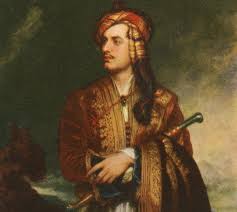In the annals of Romantic poetry, George Gordon Byron, the 6th Baron Byron, stands out not only as a literary luminary but also as a fervent supporter of the Greek War of Independence. As the world observes the 200th anniversary of his death in 2024, the Society for Hellenism and Philhellenism, along with the Philhellenism Museum, has declared this year as the "Year of Lord Byron and Philhellenism.” The focus is on commemorating Byron's profound connection with Greece and the broader impact of Philhellenism.
Lord Byron's Philhellenic Journey
Born in London in 1788, Lord Byron's life was marked by exuberance, flamboyance, sometimes scandalous love affairs and a passion for adventure. He entered the House of Lords at an early age and embarked on a Mediterranean journey from 1809 to 1811, chronicled in his famous work, "Childe Harold’s Pilgrimage."
Greece captured his imagination during these travels, leading him to spend extended periods in Athens, where he explored archaeological sites and expressed his dismay at the removal of the Parthenon marbles by Lord Elgin in his poem "The Curse of Minerva."
Byron's connection with Greece deepened during his visit to Athens in 1810, where he penned the romantic poem "Maid of Athens, ere we part," presumably dedicated to the teenage Teresa Makri. The publication of "Childe Harold" catapulted him to fame, and he continued his literary pursuits during extensive travels, particularly in Italy, accompanied by notable friends such as Mary and Percy Shelley.
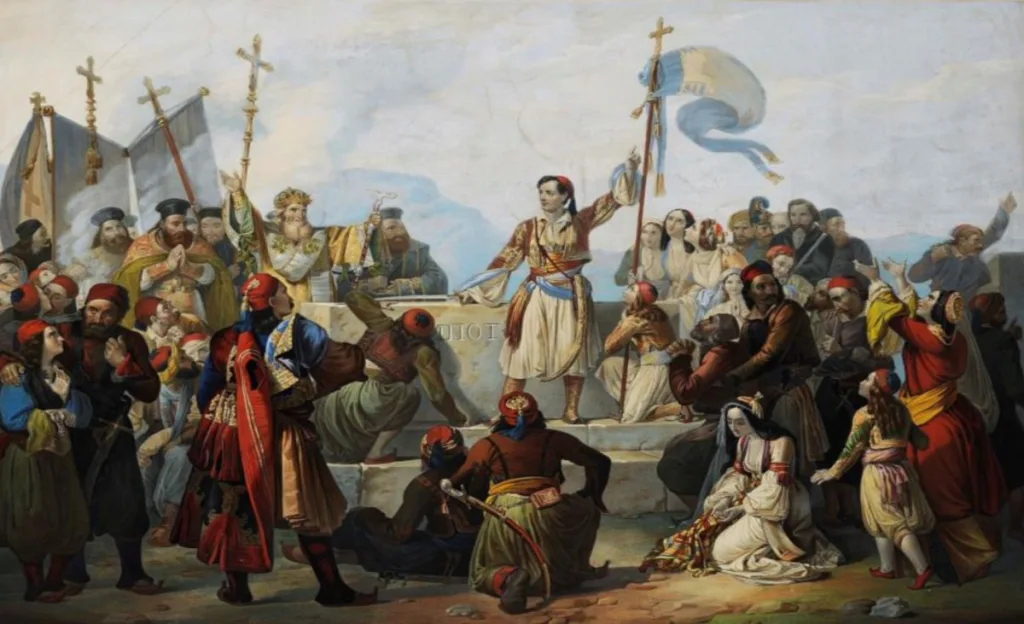
Byron's Philanthropic Mission to Greece
In 1823, living in Genoa with Countess Teresa Guiccioli, Byron decided to travel to Greece to act as an agent of the London Philhellenic Committee in support of the Greek War of Independence. His destination was Missolonghi, a town strategically important to the Greek forces and the base of prominent politician Alexandros Mavrokordatos.
Despite lacking military experience, Byron intended to lead an attack against the Ottoman-held fortress of Lepanto. However, internal conflicts within the Greek Revolution and Byron's declining health, possibly due to a relapse of malaria that he had contracted in previous years, delayed the planned attack. Byron, determined to contribute, brought a significant sum of money from the sale of his property to support the Greek cause.
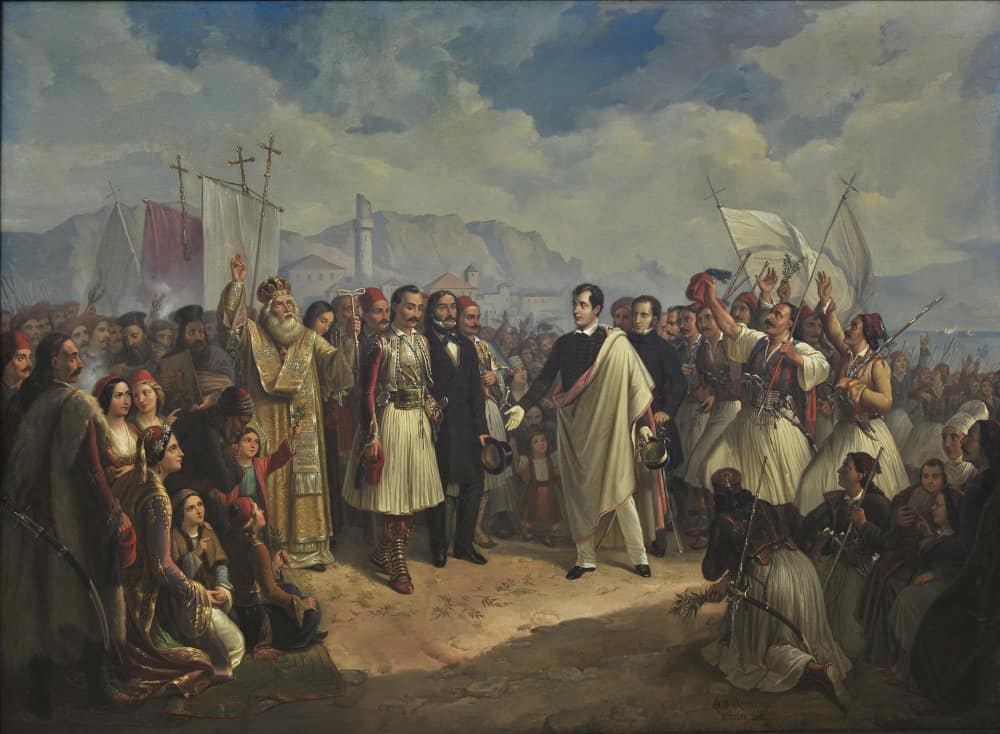

Byron's Final Days and Immortalised Poetry
Byron's health deteriorated rapidly in Missolonghi. After a violent fever attack in April 1824, exacerbated by a storm-induced cold, he succumbed to illness on April 19, 1824.
On the day of his last birthday, January 22, 1824, Byron penned a poignant poem titled "On This Day I Complete My Thirty-Sixth Year." This private diary entry reflects Byron's contemplation of ageing, unrequited love, and his newfound inspiration from the Greek struggle for independence.
On This Day I Complete My Thirty-Sixth Year
by Lord Byron
The poem encapsulates Byron's commitment to the Greek cause and his aspiration for a noble death in the service of freedom. Even though his demise did not occur in battle, Byron's presence and sacrifice in Greece drew attention and active participation from sympathetic nations.
'Tis time this heart should be unmoved,
Since others it hath ceased to move:
Yet, though I cannot be beloved,
Still let me love!
My days are in the yellow leaf;
The flowers and fruits of Love are gone;
The worm, the canker, and the grief
Are mine alone!
The fire that on my bosom preys
Is lone as some volcanic isle;
No torch is kindled at its blaze—
A funeral pile.
The hope, the fear, the jealous care,
The exalted portion of the pain
And power of Love, I cannot share,
But wear the chain.
But 'tis not thus—and 'tis not here—
Such thoughts should shake my soul, nor now,
Where Glory decks the hero's bier,
Or binds his brow.
The sword, the banner, and the field,
Glory and Greece, around me see!
The Spartan, borne upon his shield,
Was not more free.
Awake! (not Greece—she is awake!)
Awake, my Spirit! Think through whom
Thy life-blood tracks its parent lake,
And then strike home!
Tread those reviving passions down,
Unworthy manhood!—unto thee
Indifferent should the smile or frown
Of Beauty be.
If thou regret'st thy youth, why live?
The land of honourable death
Is here:—up to the field, and give
Away thy breath!
Seek out—less often sought than found—
A soldier's grave, for thee the best;
Then look around, and choose thy ground,
And take thy rest.
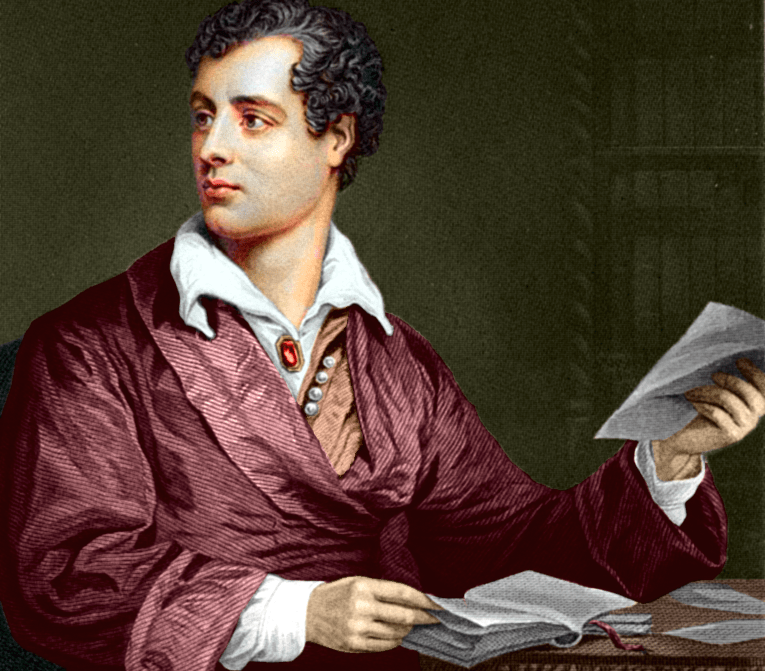
Byron's Enduring Legacy in Greece
Lord Byron's contributions to Greece have endeared him to the Greek people, with statues of Byron adoring prominent sites in Athens and Missolonghi. His heart is said to rest beneath his statue in Missolonghi, while his remains rest in the UK. The name "Vyron" or "Vyronas" became a popular male first name in Greece, and the municipality of Vyronas in Athens was established in his honour.
As 2024 unfolds, the "Year of Lord Byron and Philhellenism” aims to commemorate Byron's legacy and the broader impact of Philhellenism. Through exhibitions, conferences, publications, and student competitions, the year-long celebration seeks to ensure that Lord Byron's passion for Greece and his contribution to the Greek War of Independence are remembered for generations to come.
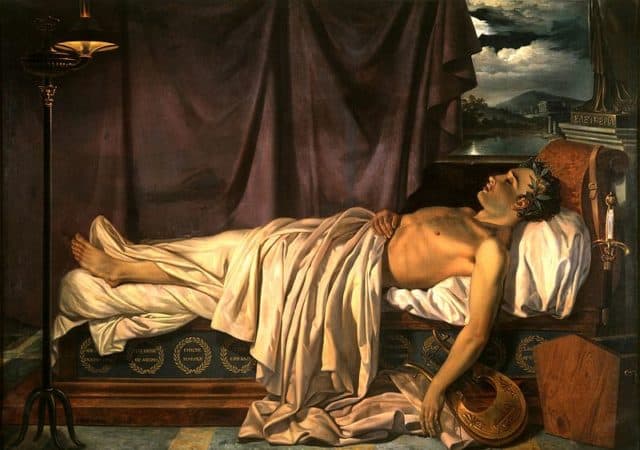
Read also My Big Fat Greek Wedding: Nia Vardalos Goes Public with ‘Secret’ Love

